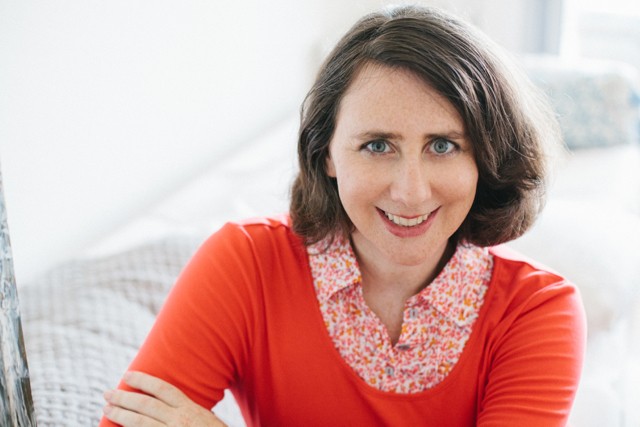Welcome Nadia Jacobson
Nadia Jacobson is a writer, editor, and writing instructor who has been with me from the very beginning of my writing journey, so I'm more than delighted to share this interview with her today. I've been honored to occasionally take part in Writespace Jerusalem both as an instructor and as a participant and I encourage others who have the opportunity, whether they live in Israel or are passing through for a visit, to do so.
BIO: Nadia Jacobson is a flash fiction editor at the Ilanot Review, an international journal of creative writing and served as co-Municipal Liaison for the Jerusalem region of National Novel Writing Month in 2016. She holds an MA in English Literature and Creative Writing from Bar-Ilan University, and her fiction has appeared or is forthcoming in The Binnacle, Annalemma, Every Day Fiction, and a number of anthologies. A long-time member of the Jerusalem Writing Circle, she has taught creative writing privately and in schools and colleges.
GG: What gave you the idea of setting up a creative writing center?
NJ: I was the kid whose stories in school sparked phone calls to the house questioning whether there had been a death in the family or a strange event really had happened. While delighted that my teachers thought my fiction was a reflection of real life, I felt betrayed. As an adult, I believe this experience contributed to my vision of building a safe environment for writers to share work and to expand their literary horizons by exploring a wide variety of genres. Now I support everyone on their writing journey, from the newbie to published author, whether through one-on-one coaching, workshop series or a one-day seminar.
GG: In a Times of Israel article Writespace Jerusalem is described as a "continuing ed school for writers". Can you comment on that definition? Is it appropriate?
NJ: I felt bereft after completing the Shaindy Rudoff Program in Creative Writing at Bar-Ilan University, as English-language opportunities to keep learning and improving in Israel were extremely limited. Once I could no longer go abroad to attend workshops and retreats because I was raising a family, I set up Writespace Jerusalem to foster a thriving local writing community, with workshops given by authors living in Israel or visiting from abroad. Writing can be very lonely, many writers have told me how exhilarating it is to get together and write with other passionate creatives in real life. Given that, I'm thrilled to have been approached by writers outside of Jerusalem (and abroad) to make our flagship Story Foundations workshop series a live online workshop, which I'll be offering this summer.
GG: Pivoting to your own writing, in your flash piece Photographic Memory, you don't give the characters names. Is this because the characters could be the everyman or is there another reason?
NJ: Memory - who, what, how events and experiences are remembered or forgotten - is a recurring theme in my work.The father-son relationship was the focus of that story, so I felt names would be distracting. I wrote that story a very long time ago, now I'd edit it.
GG: Do you prefer short pieces to longer ones as a writer?
NJ: I only used to write flash -- it's an addictive form. To my dismay, around a decade ago, a 100-word flash began to germinate into an 80,000-word novel. A character in that novel became such a dominant figure that she needed her own story told, so I took her out to create yet another novel. This is absolutely terrifying for someone used to working on a small canvas. As I've begun the long process of line-editing my novels, I've returned to the wild intensity of flash as a break from editing.
GG: What new elements would you like to see in Writespace Jerusalem?
NJ: I'd like create a membership program so writers can come to as many workshops and events (social/educational), as they choose. I'd love to set up accountability groups and submission evenings to encourage more women to submit. A retreat is in the pipeline.
GG: Is there ever a tension between your work at the Ilanot Review and Writespace Jerusalem?
NJ: I immediately note on a submission that I cannot be the deciding vote if I know the writer.
GG: How does your work helping other writers contribute or take away from your own writing?
NJ: At one point I was experiencing burn-out. Running a community enterprise, coaching, editing manuscripts, and teaching left me with little time to work on my own writing. The characters in my novel were furious - they were threatening to leave and haunt some other writer. I desperately needed to refill my creative well. Now I schedule specific months during the year for my own writing and nurture. It's beneficial to both to myself and to my students.
Thank you so much, Nadia. If you'd like to find out more about WriteSpace Jerusalem, visit the website.
When you subscribe to the blog, we will send you an e-mail when there are new updates on the site so you wouldn't miss them.


Comments